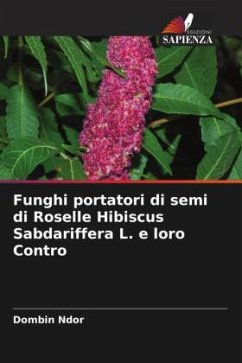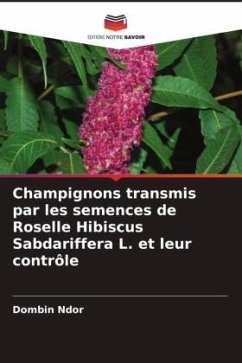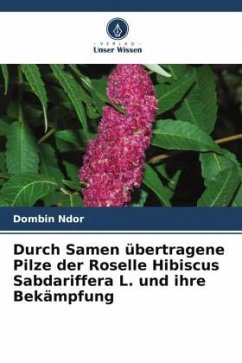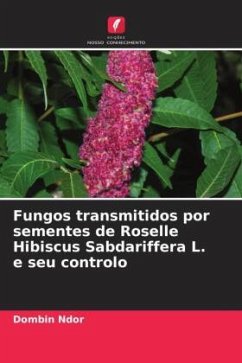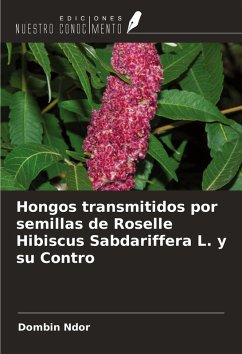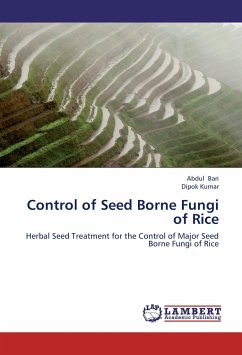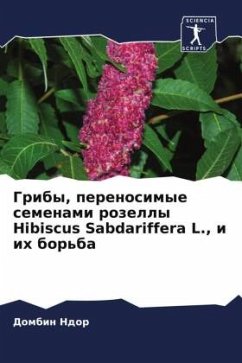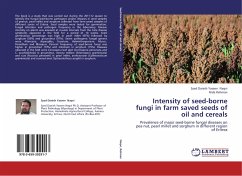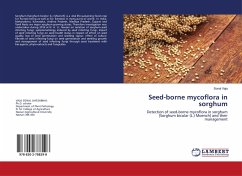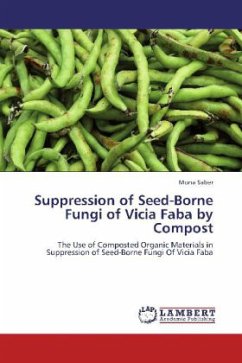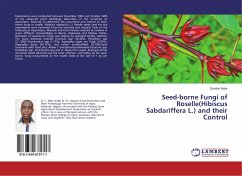
Seed-borne Fungi of Roselle(Hibiscus Sabdariffera L.) and their Control
Versandkostenfrei!
Versandfertig in 6-10 Tagen
24,99 €
inkl. MwSt.

PAYBACK Punkte
12 °P sammeln!
Experiments were conducted between December 2004 and October 2005 at the advanced plant pathology laboratory of the University of Agriculture. Makurdi, to determine the occurrence and control of seed-borne fungi or roselle. (Hibiscus sabdarifJa L.). Roselle seeds used for the experiments were harvested from the teaching and research farm of the University or Agriculture, Makurdi and from farmers selected at random in seven different towns/villages in Benue, Nasarawa and Plateau States. Detection of seed-borne fungi was majorly by standard blotter method. The fungi detected includes Fusarium sp...
Experiments were conducted between December 2004 and October 2005 at the advanced plant pathology laboratory of the University of Agriculture. Makurdi, to determine the occurrence and control of seed-borne fungi or roselle. (Hibiscus sabdarifJa L.). Roselle seeds used for the experiments were harvested from the teaching and research farm of the University or Agriculture, Makurdi and from farmers selected at random in seven different towns/villages in Benue, Nasarawa and Plateau States. Detection of seed-borne fungi was majorly by standard blotter method. The fungi detected includes Fusarium spp (16.40%), Penicillium spp (2,1.30%) Chactontium spp (1.17%), Aspergillus niger van Tiegh (37J3%), Aspergillus jlavus (42.12%), and others (unidentified) 20,70%).Seed treatment with Seed plus, Aldrex T and Benomyl eliminated Fusarium spp; Penicillium spp, Chactonium spp and A. flavus from seeds. Amongst all the chemicals tested Benomyl was the most effective, controlling all the seed-borne,fungi encountered on the roselle seeds at the rate of 1 kg per tonne.



